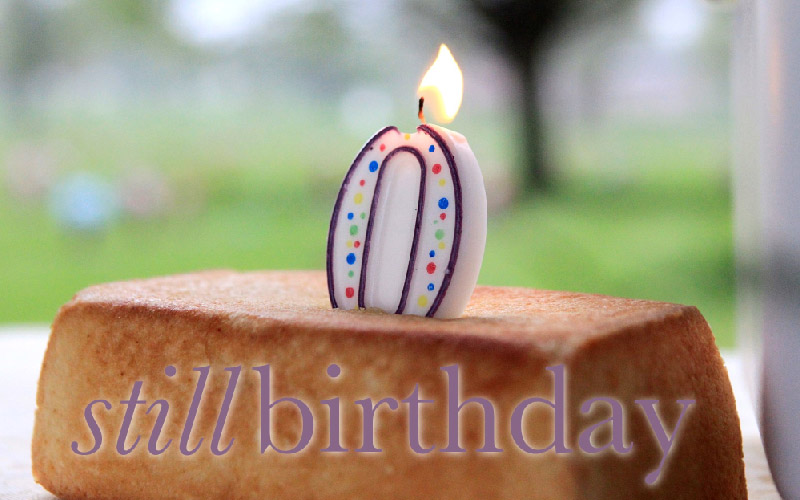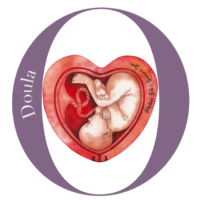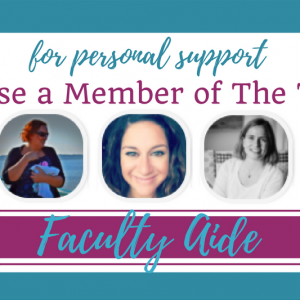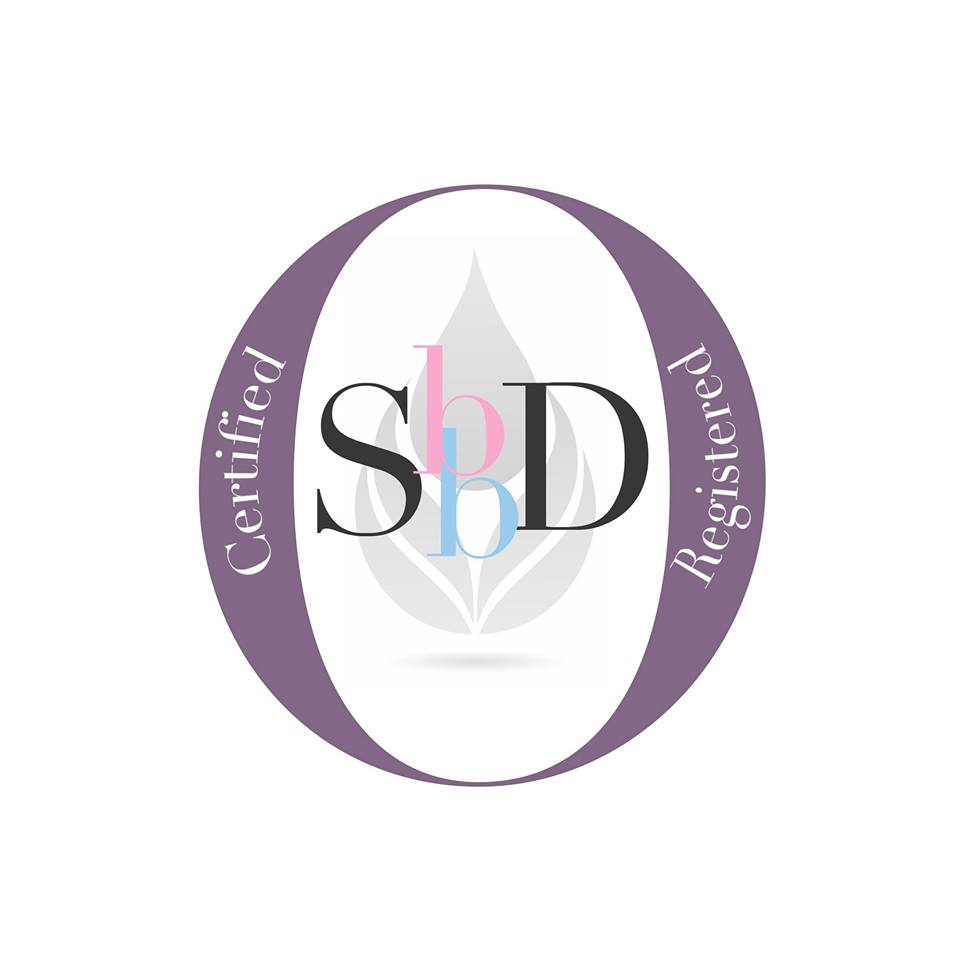After a pregnancy or infant loss, the mother is left to hold nothing but her empty womb and she’s left to try to sort through how what once was her baby’s first home has so quickly become his or her dark, empty tomb. Reflection, trying to piece it all together, trying to assimilate this deep tragedy, these things are all vitally important to the mothers emotional and mental health.
Many mothers, not all, but many mothers who reflect on their losses experience some level of blame and accusation in their grief reaction, whether their reflection takes place immediately following their loss, or even many years later. Here are some examples:
- Could the nurse have foreseen complications in my labor?
- Could the OB have known more about my baby or my birth?
- Could the midwife have transferred me sooner?
- If things were cheaper or more affordable, would I have made a different birth plan? Would I have gotten more or less testing during the pregnancy?
- If there had been more information/education available, would I have done things differently?
- Could my family have been more supportive of me while I was pregnant or during my loss?
- Could my employer have been more supportive of me while I was pregnant or during my loss?
- Could __________ have been more supportive of me while I was pregnant or during my loss?
There are many reasons why this sort of reflection is important. First, it gives passion. This passion fuels energy and motivates the bereaved mother to find answers. The way she interprets her past will help shape her future. If she wonders if things could have been handled differently, it can encourage her to learn more, to share her story, and to seek change. In short, her passion gives her purpose. This purpose gives her the bravery she needs to share her story. A mother simply cannot “undo” her pregnancy and the reality of her child. In fact, as soon as she learns that she is pregnant, she begins to submit to motherhood. This submission, in and of itself, this anticipation and emotional preparation, is grieved after a pregnancy loss. To many mothers, pregnancy loss is impossible to hide. It becomes a permanent part of the mother’s identity. Being able to share her experience gives life to what was lost. Ultimately, the passion to find purpose in her loss can sustain her through the tumultuous journey of grief. In short, having a passion can save her own life.
Another reason this reflection is important, is that it gives other people something that they can identify with. Not everyone is personally impacted by pregnancy loss, but we each know what it’s like to feel abandoned, to feel violated, to feel unsupported, to feel foolish or naive or vulnerable and we each know what it’s like to be let down. When a mother says, “I wish I had known/done ___” it gives us an opportunity to reach her. We can find that hurt in our own lives and we can relate to her. This reflection that includes blame can serve to be a bridge of communication and feelings that unites otherwise nonrelated people and feelings. It allows for more people to surround the mother with more aspects of love, compassion and direction for her to utilize. This can serve to sustain her on her journey of finding and giving purpose to her experience.
When a bereaved mother exhibits that she is on this path of reflection that includes blame, we as her audience have certain responsibilities:
- We are responsible to not force her to stop.
- We are responsible to tell her what boundaries we expect her to honor.
- We are responsible to tell her what will result if she violates those expectations.
- We are responsible to trust that she will grieve how she needs to grieve and that she will move into a different aspect of her grief when it is her time to do so.
Here is an example of how this would look:
A bereaved mother presents herself to be certain that her OB’s negligence resulted in the stillbirth of her son. The hospital where she delivered her son is near her home – it is easier for her to drive past it than it is to find a new route to avoid it. Every time she sees the hospital, anger wells in her heart. One day, she pulls into the parking lot. She walks across the parking lot and as each step brings her closer to the entrance, the massive, looming building overwhelms her with vulnerability and anguish. She pushes the button to have the elevator take her to the maternity floor. She enters the unit, and screams at the top of her lungs “MY DOCTOR TOOK MY BABY!” A hospital employee rushes over to her and promptly tells her firmly, “I am sorry for your loss, ma’am, but you cannot come bursting in here like this. Let me find someone you can speak with privately on this matter.” The mother begins to protest, ready to scream again. The employee cuts her short and says firmly, “If you continue to scream you are going to be escorted out of the building.”
Here is another example:
A bereaved mother presents herself to be certain that her midwife’s negligence resulted in the death of her daughter. The mother uses social media as a means of communicating her feelings, and she tells other mothers to be weary of this midwife. She writes a comment on a doula’s Facebook page, telling the mothers who are reading not to trust that midwife. The doula responds firmly, “I am sorry for your loss, but this is not the right place to share about your grief. Let me find a resource to help you.” The mother replies by saying that she feels it is her job to warn others. The doula replies, “If you have suggestions or recommendations you’d like to share, I would welcome them, but I will not allow for negative feedback on my page. If someome specifically asks about that midwife, you can share court reports or investigations or things that are substantial. Right now, you are putting me in a place of having to decide if your story is true or not, and that is not fair to me but especially not fair to you. Let me get you a resource or two (stillbirthday) that can help you work through these feelings, because they are important.”
There are a few reasons why it is important to take our responsibilities in her grief seriously:
- Grief can be volatile and the mother can quickly become suicidal.
- Giving her our own interpretation of things cuts her journey off. It puts the focus of her energy on blindly resenting or blindly obeying our suggestions. In short, the focus is taken off of how she assimilates her experience, to how she feels about your interpretation of her experience (this is not only true for her listening audience, but any legal action involved in her situation can impact her grief reaction).
- If you are not legally authorized to substantiate her accusations, you can choose to lead her to resources that will join her in her journey to substantiating her accusations, but you need to take great care in how you engage her so as not to promote magnified, irrational, explosive, uncontrollable blame or anger.
Additionally, recall the questions posed at the beginning of this article – those questions that have an emphasis in blame. Oftentimes, the emphasis in blame is the only way the mother can really ask the questions that are on her heart – questions that are not rooted in this external blame at all, but are rooted in guilt. Consider the comparison:
- Should I have relied on the nurse to foresee complications?
- Should I have picked that OB?
- Should I have trusted that midwife?
- Should I have made a different birth plan? Should I have gotten more or less testing or more education/information during the pregnancy?
- Should I have expected __________ to be more supportive of me while I was pregnant or during my loss?
These are extraordinarily tough questions – and it is NOT our responsibility to thrust these questions onto a grieving mother. Remember, one of our responsibilities is to trust that she will grieve how she needs to grieve and that she will move into a different aspect of her grief when it is her time to do so. It is unhealthy and frankly dangerous to force these questions onto a mother before it is her time to see them. There are tools that she can access, which can help her through her grief, including stillbirthday and all of the resources available here.
In the end, blame can, with direction, lead to something much more substantial and an energy that is much more longlasting and effective: forgiveness and healing.
This brings me to a final point, and that is there are aspects of her grief response for which we are not responsible:
- We are not responsible for making her recall her experiences a certain way.
- We are not responsible for her emotional or physical reactions in her grief.
- We are not responsible for decisions she makes on her journey through grief.
- We are not responsible for shaping the timetable of her grief.
We cannot do everything for her, but we can do something. And because we can do something, we should not refuse to do the something that we can do. – Helen Keller
Our family/friends section has additional resources, suggestions and tips for approaching someone who is bereaved. You may find that section, among many here, to be helpful for additional support.
Finally, I’d like to share a personal story with you.
Last Valentine’s Day, my husband and I had three rowdy boys. I was homeschooling, cleaning the house, washing and folding the laundry – you know, I was being a wife and mom. My husband was working full time, waking up to an alarm clock every morning, showering in the early morning, making coffee, and leaving for work, while his family slept. He worked, exhaustedly, sweating, pouring himself into his profession. He came home to change diapers, help clean up the kitchen, snuggle the little ones in bed, and then listen to me share my burdens or share with him the developments in his children that he missed that day – you know, he was being a husband and dad.
So, for Valentine’s Day, he treated us both to an overnight stay at a bed and breakfast. It was near our home, but was a place for us to just escape for an entire evening and long, lazy morning. It was wonderfully romantic.
Part of the experience – the atmosphere – of this quaint, warm, cozy bed and breakfast was a wine tasting. I indulged and really enjoyed the lovely flavors of the different wines.
We had a delightfully romantic evening, followed by a snuggly, lazy morning, before heading home to our children and their grandma.
I soon discovered that I had a bladder infection.
I tried all of the natural remedies I know of, and then finally went to the doctor.
He asked me if I was pregnant, and I told him that it would be too early to tell, but that I very well could be. He gave me a urine pregnancy test, which was negative, and wrote me a prescription for an antibiotic.
I filled it at my local pharmacy. The face in the drive through window asked if I was pregnant. I told her the same thing, that it is too early to tell but that I very well could be. She frowned, and handed me the small white package. On it, printed in big, bold black ink, “Confirm Not Pregnant.”
I found out that I was pregnant soon after. I was excited to be pregnant again! I felt like I knew I would be. I wrote an article on my personal blog entitled, “Cupid, My Quiver Filler”. I didn’t tell anybody about the bladder infection. I stopped taking the antibiotic because I was concerned about the warning on it. The bladder infection didn’t go away, and so I rigorously tried every natural thing I could think of. Finally, I went back to the doctor, and received another, a different, antibiotic. This time, nobody asked if I was pregnant.
Soon after, my baby died.
For weeks, I held on to the question that the first antibiotic, which was clearly not safe for pregnancy, killed my baby. I recalled in horror as the doctor wrote me the same prescription he had planned, even after I told him I felt like I could be pregnant. The dark foreboding words bled through my heart “Confirm Not Pregnant.” I couldn’t bring myself to ask – I couldn’t bring myself to know. I carried the wonder, until I was ready to look for myself.
When I was ready, I investigated. I called the pharmacy to find the names of both antibiotics. I researched them. And, I came to find out, that the cause of my baby’s death wasn’t likely to be the antibiotic – maybe, but not likely.
And so I knew what I needed to find out next. I researched to see if an untreated bladder infection can cause a miscarriage.
It can.
I sit here now, with Valentines Day nearing, and remembering how very different things were last year. It has been an entire year, and I am only just now able to share this. Would my heart have been ready to hear that I played an integral role in the death of my own baby by any other means than my own? I remember seeing my baby, my tiny, crumpled, incomplete but perfect baby sit in the palm of my hand. I remember chanting, “I’m so sorry, I’m so sorry, I’m so sorry” and I remember the confusion I sensed from my husband at my reaction, because I wasn’t brave enough to tell him that my own irresponsible actions played a part in the death of his baby. He didn’t know.
When I was ready, I went back to my OB. I told him that I wasn’t sure that the first prescription caused my miscarriage, but that I was concerned simply for the fact that it could have. I told him that I expect him to prescribe for women who are of childbearing age and who believe that they may be pregnant as if they are pregnant whenever possible. He said he would, that he could see how it could hurt me to always wonder, and he told me he was sorry for my loss. And I forgave him for the possibility of killing my baby.
When I was ready, I played back that romantic Valentines Day night over in my mind. I saw the course of events and knew for certain that I would do things differently if only I had known. I reminded myself that I simply did not know. It is painful – it is painful beyond comprehension and expression – to articulate knowing that I will always wonder. But, when I was ready, I forgave myself for the possibility of killing my baby.
I can say with full certainty that I would not have reached that point if it was thrust upon me by others. I needed my own space to grieve – as does every mother. My own space allowed me to share in my own way, and in my own time. I created stillbirthday, so that families can have their own space, to also explore their grief – in their own way, and in their own time.












